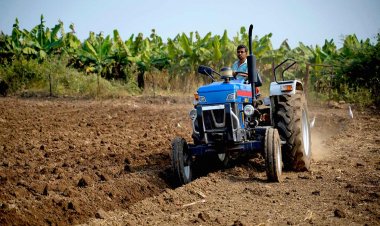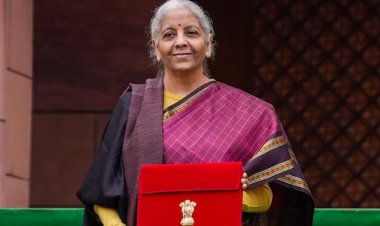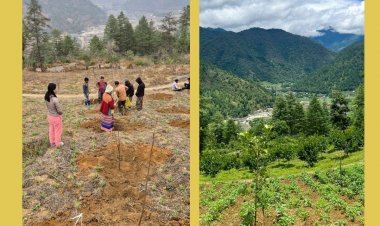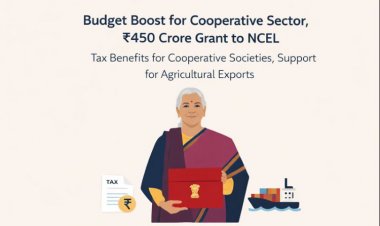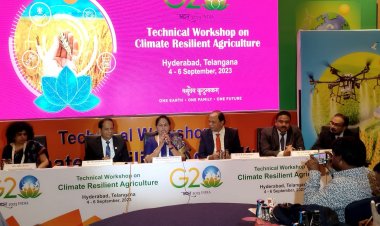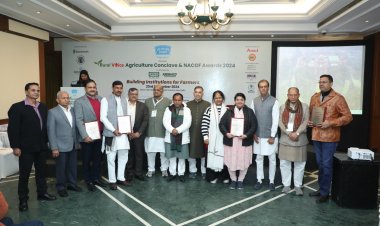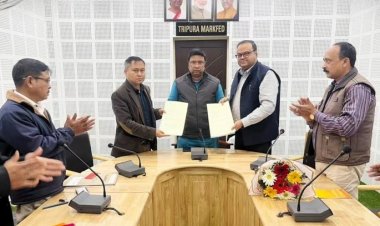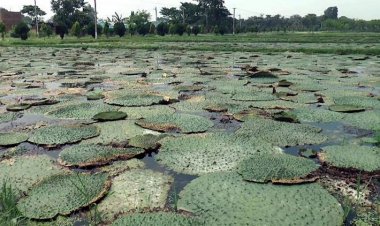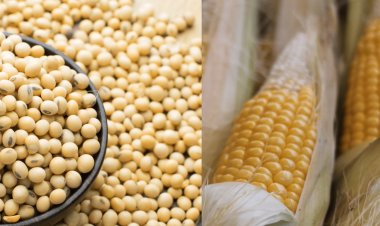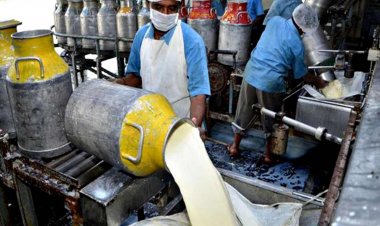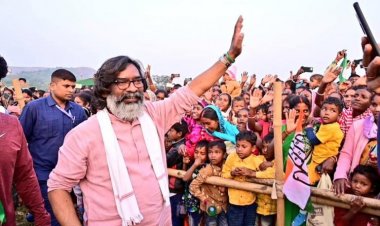Rural development through agribusiness: Meeting the challenges
Agribusiness initiatives appear to be the panacea for all issues affecting rural areas. Development in rural areas would mean sugarcane will go out of the village as gur or shakkar and potato as potato chips. Similarly, wheat will go out in the form of packed atta and tomato as tomato soup. This is not a hard nut to crack, provided effective leadership is available at central, state and local levels.
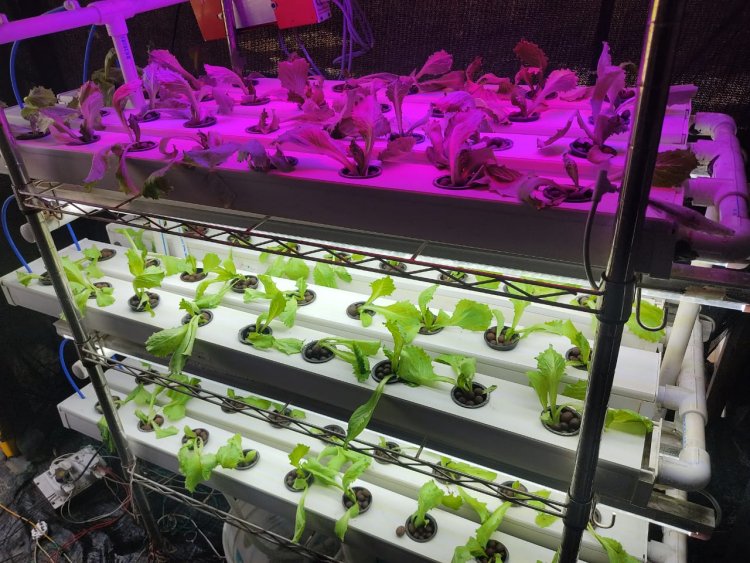
On Kisan Diwas (Farmers’ Day), Rural Voice organized the Agriculture Conclave and NEDAC Awards 2021. In this programme, policymakers, senior bureaucrats, experts, cooperators and journalists participated.
Among others, a discussion was also held on how to make agriculture ‘agribusiness’, which is the need of the hour. Farmers, who are supposed to be in the fields, were on the roads recently. They expressed to the establishment their anger that they were not treated fairly for the prices of inputs being used in agriculture and the value of outcomes of agricultural commodities even as they are getting Rs 2.2 trillion as subsidies on fertilizers, power, crop insurance, seeds, credit, irrigation and, under other heads, close to 10 per cent of agricultural GDP and 12 per cent of average farm income.
Why is this so? The reason is that the agriculture sector has been progressing slower than the other sectors of the economy and carrying more burden of people than its carrying capacity, which is evident from the fact that over more than six-and-a-half decades from 1951-52 to 2016-17, industry has grown at an annual average rate of more than six per cent, services also at more than six per cent whereas agriculture not even at three per cent. This has resulted in a decreased share of agriculture in GDP — from as much as 53.1 per cent in 1950-51 to just 15.2 per cent in 2016-17. If Indian agriculture is compared with that of other developed countries, it is found that the share of agriculture is 2 per cent in South Korea, 1.5 per cent in France, 1 per cent in Japan and the US and merely 0.5 per cent in UK. Similarly, the share of employment in agriculture in these countries ranges from 1 per cent to 5 per cent whereas, in India, the share is as high as 45 per cent.
The major reasons for converting agriculture from ‘development’ discourse to ‘distress’ discourse are a lack of remunerative prices of the farmers’ produces and severe underemployment or disguised unemployment among the farmers. If farmers get more income from their activities and also have additional job opportunities in their surroundings, they will be in a comfortable position. Keeping this in view, moving from 'agriculture' to 'agribusiness' is being debated and supported from different quarters.
Meaning of agribusiness
Agribusiness consists of four sub-sectors: (i) agricultural inputs; (ii) agricultural production; (iii) agro-processing; and (iv) marketing and trade. Putting these together, it covers crop production, distribution, agrichemicals, fodder, breeding, farm equipment, seed supply, raw and processed commodities of food and fibre, storage, transportation, packing, soil testing, marketing, retail sales, etc.
Efforts made by the government to promote agribusiness
To promote agribusiness in the country and enhance the incomes of the farmers, a network of Agri-Business Incubation (ABI) centres has been initiated in different states of the country under the National Agriculture Innovation Fund (NAIF) Scheme by the Indian Council of Agricultural Research (ICAR). These ABIs act as an effective platform for fostering the growth of sustainable business endeavour and nurturing techno-entrepreneurs. The ABI centres provide a wide range of services such as research support; business planning; office space; access to information and communication technologies; and advice on management, marketing, technical, legal, and financial issues.
Attracting and Retaining Youth in Agriculture (ARYA) was started during the 12th Plan period to promote agribusiness. It is being implemented through Kisan Vikas Kendra (KVKs) in one district from each State. Both individual or group-based activities/enterprises are being encouraged under it based on the nature of the enterprise.
Rural Entrepreneurship Awareness Development Yojana (READY) was started in 2015-16. READY comprises experiential learning, rural awareness, work experience in plant training/ industrial attachment, hands-on training, and student project. Financial support is also being given to students for six months.
Agricultural marketing is done by the network of regulated wholesale markets set up under the provision of the respective State Agricultural Produce Market Committee (APMC) Act. The Government has implemented National Agriculture Market (e-NAM) scheme, an online virtual trading platform to provide farmers with opportunities for transparent price discovery for remunerative prices for their produce through a competitive online bidding system.
Challenges
The Government has initiated numerous measures for the promotion of agribusiness in the country. However, there are umpteen challenges in the way of achieving goals in the right perspective. The following additional policy measures may be taken up to harness optimum benefits from the above initiatives for the development of farmers:
(a) Awareness about these initiatives among farmers on a sustainable basis. Panchayati Raj institutions (PRIs) and their chairpersons and members may be engaged in this activity.
(b) Effective convergence of different programmes may also be operationalized in a time-bound manner. Among others, two important programmes, namely Mahatma Gandhi National Rural Employment Guarantee (MGNREGA) Scheme and National Rural Livelihood Mission (NRLM) are very important in this regard and intended benefits under these must be optimized with agribusiness activities.
(c) The supply side of the delivery of services at the grassroots level has to be strengthened through adequately trained available manpower. Further, vacant posts of different streams at village, block and district levels need to be filled up immediately.
(d) Banks, instead of becoming like government offices, should act as a friend, philosopher and guide to farmers in carrying out various agricultural activities. Political parties must desist from loan waiver announcements because it is neither good politics nor good economics.
To sum up, agribusiness initiatives appear to be the panacea for all issues affecting rural areas. Development in rural areas would mean people’s friendly sugarcane will go out of the village as gur or shakkar and potato as potato chips. Similarly, wheat will go out of the village as the final product in the form of packed atta and tomato as tomato soup. This is not a hard nut to crack, provided effective leadership is available at central, state and local levels.
(The author is a former officer of the Indian Economic Service and President, Karpa Foundation. The views expressed here are his own.)



 Join the RuralVoice whatsapp group
Join the RuralVoice whatsapp group


















